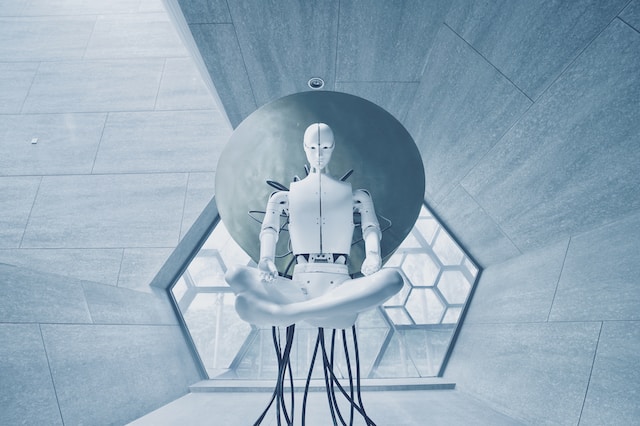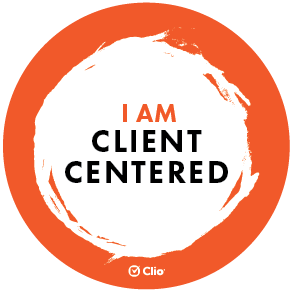For as long as the concept of artificial intelligence (AI) has existed, it has prompted novel and important questions. These questions and the ensuing discussions span various sectors, from biotech and medicine to intellectual property law and ethics.
What is Generative AI?
Recently, a new form of AI technology – “generative AI” – has emerged which raises foundational issues regarding copyright laws. Generative AI technology refers to online programs that use massive amounts of “source data” to generate new content based on user text prompts. These generative AI systems may generate text – answer questions, write stories or code – music, or images.
Important Legal Questions about Generative AI Copyright
This blog mini-series will introduce some of those important legal questions concerning copyright and intellectual property rights that will affect both programmers and users of generative AI. As well, we will address the questions that our courts and legislators must eventually answer regarding the material generated.
Copyright and Generative AI Source Data
Generative AI systems rely on the consumption of massive quantities of “source data” to build its models and to generate its outputs. The training data can be information in almost any form. In this context, the important fact is that much of the source data is copyright protected.
What is Copyright Protection and What Works are Eligible for Copyright?
Generally, copyrighted creative works are original ideas that have been fixed in a form. An idea in someone’s head, for example, is not eligible for copyright protection. It becomes copyrighted material if it is an original idea and is “fixed” – written down, filmed or recorded in such a way that it is tangible.

Join Our Community
Be the first to read new articles, industry news, and more. Sign up to our newsletter today!
How Long Does Copyright Protection Last?
In Canada, the lifespan of copyright protection in most works is 70 years after the death of the author. Once the copyright has lapsed, the work goes into the public domain. This means that any person can use and exploit the work as they wish.
Examples of Copyright Law and Public Domain
For example, in 2022, A.A. Milne’s beloved Winnie the Pooh entered the public domain. Very soon after, new adaptations and interpretations were announced that likely would not have been allowed while the character and story were still protected by copyright. A quick google of “Winnie the Pooh adaptations” will illustrate some of these radical uses.
What is a License and What is Copyright Infringement?
To use copyrighted material, the user must be licensed by the copyright holder. A license is a grant of rights from the copyright owners with limitations. Using copyrighted material, for commercial purposes or otherwise, without a license is considered a violation of the copyright owner’s rights called copyright infringement.
A copyright owner may bring a copyright lawsuit against unlicensed users of their work, which may include a claim for equitable relief (for example, an injunction) or monetary damages.
When is a License Needed for Generative AI?
Like other creators, programmers using generative AI tools to produce works must do their due diligence by obtaining licenses for copyrighted material in their source data. Countless stories have emerged of copyright owners who claim that AI generated works violate their copyright protections, particularly as it relates to AI art.
Some AI generated works are instantly recognizable as being “in the style” of a specific artist – a style that the user may have specifically prompted the AI tools to emulate. An even more obvious example is AI generated images with key elements of works created by the copyright owner – in some cases, including some part or all of the original artist’s signature.
Copyright Infringement in AI Generated Works
Claims of copyright violation are often difficult to navigate, particularly when the claim centers on use of an artist’s style. Direct use of a portion of artistic works is less uncertain.
Copyright Infringement in Music
An analogous situation is the use of samples in the music industry. Samples are excerpts from previously recorded and published songs that another artist uses as part of a new song (see our blog on Music Interpolations).
Unless the original song has entered the public domain, the sample is copyrighted and cannot be freely used. The common practice in music is for the second artist to enter into a license agreement with the first artist to use the sample.
Further Questions Regarding Generative AI Copyright
As in music, respecting the intellectual property rights of the creators of source materials would seem to require the creators of generative AI systems to obtain licenses for use of all source data.
As a practical matter, obtaining one or a few licenses for limited samples, as is the case with the music example, is possible. Obtaining hundreds of thousands or millions of licenses for the copyrighted works created in the large data sets used by generative AI models might not be.
How will the courts and legislators balance the intellectual property and economic rights of creators – which are of fundamental importance to the law and to the arts – and users, in the context of generative AI technologies? Read Generative AI & Copyright Protection – Part 2
© 2023 Edwards Creative Law, LLP – Updated to April 11, 2023
Edwards Creative Law is Canada’s Entertainment Law Boutique™, providing legal services to Canadians, and international clients who partner with Canadians, in the Film & Television, Music, Video Games and Apps, Publishing and Literary industries.
For more information or to set up a minute Discovery Call with one of our entertainment lawyers please feel free to Contact Us.
* This blog is for general informational purposes only and is not to be construed as legal advice. Please contact Edwards Creative Law or another lawyer, if you wish to apply these concepts to your specific circumstances.
Check out our popular blog posts:
Neighbouring Rights in Canada – Being a Musician is a Business
Setting up a Music Publishing Company in Canada
Copyright Protection & Classical Music
Work Made for Hire Explained
10 Co-Production Considerations in Canada – Ask an Entertainment Lawyer
Film Profits & Points – Ask an Entertainment Lawyer
The “Just Trust Me” Legal Agreement
Learn more about our services:
Film and Television Law
Music Law
Video Game and App Law
Publishing and Literary Law
Employment Law
Dispute Resolution and Litigation Law
Corporate Law
International Services



